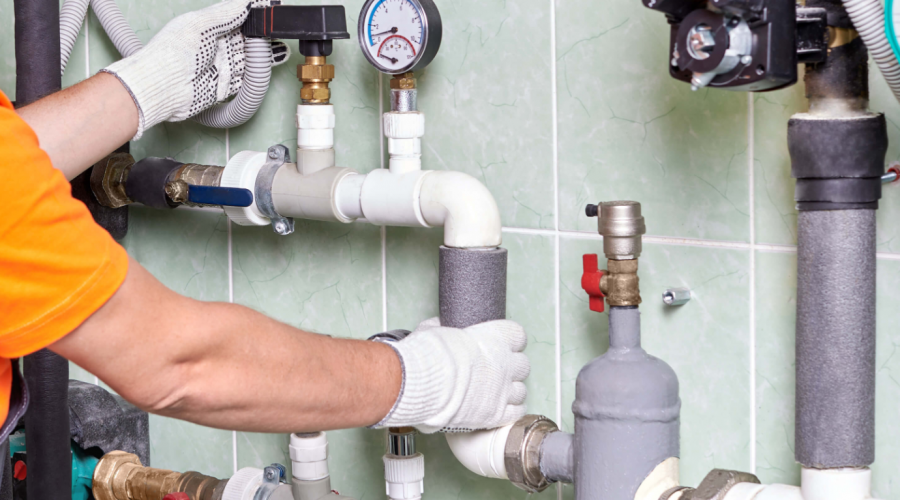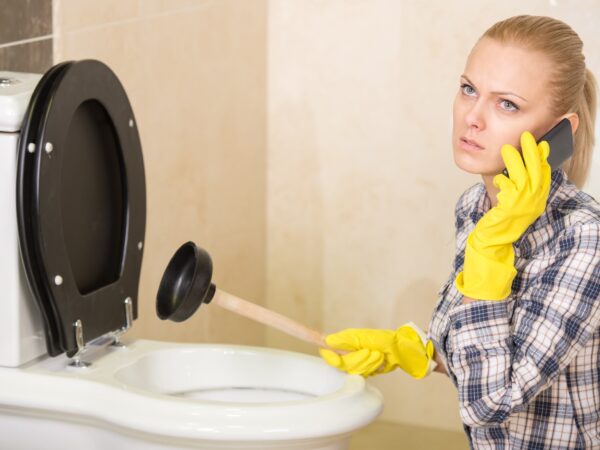How do you really feel when it comes to Expert Tips for Emergency Plumbing Repairs?

Pipes emergencies can strike at any moment, creating stress and anxiety and possible damage to your home. Whether it's a ruptured pipeline, a stopped up drainpipe, or a dripping faucet, understanding exactly how to handle the circumstance up until a specialist plumbing professional gets here can conserve you from more complications. This short article offers vital emergency situation plumbing ideas to assist you alleviate damage and restore control during a plumbing dilemma.
Switch off the Water
The first step in any plumbing emergency is to turn off the supply of water. For localized problems, such as a dripping tap or bathroom, shut off the shutoff near the component. When it comes to a significant leakage or ruptured pipeline, find your home's primary water shut-off shutoff and transform it off right away. Understanding the location of these valves ahead of time can conserve useful time during an emergency.
Shut down Your Hot Water Heater
In specific emergencies, such as a burst pipeline, it's a good idea to shut down your hot water heater. This protects against getting too hot or damages to the system when water stops flowing. Turn off the power supply to the water heater (electrical or gas) and allow it cool off to avoid possible dangers.
Briefly Stop a Ruptured Pipe
A burst pipeline can cause significant water damages in minutes. To mitigate the concern:
Call a professional plumbing technician instantly to resolve the issue permanently.
Have an Emergency Situation Plumbing Package
Prepare a basic pipes emergency package to deal with small problems properly. Your set needs to include:
Having these devices on hand can make a substantial difference in your capability to manage emergencies.
Unclog Drains Securely.
A blocked drainpipe can be an aggravating and unpleasant issue. Right here's just how to tackle it:.
If these techniques do not function, avoid utilizing too much pressure, as it may intensify the blockage.
Handle Overflowing Toilets.
An overruning bathroom can create prompt chaos. Here's what you must do:.
Address Small Leaks with Temporary Fixes.
Small leaks can rapidly end up being considerable issues if left untreated. Utilize these momentary repairs until professional aid gets here:.
While these solutions aren't long-term, they can assist reduce water loss and damage.
Handle Frozen Pipes Meticulously.
In cooler environments, frozen pipes are an usual emergency. If you presume a frozen pipeline:.
Know When to Call a Specialist.
While quick fixes can assist briefly, certain pipes problems require prompt expert attention. Call a plumbing professional if:.
Without delay calling a professional makes certain the issue is settled properly and prevents additional complications.
Protect against Further Damages.
Taking quick activity to reduce damages can conserve you time and money over time. Below's exactly how:.
Final thought.
Pipes emergencies can be overwhelming, yet with the right understanding and devices, you can manage the circumstance effectively up until aid arrives. By shutting off the water system, addressing small leaks, and making use of temporary repairs, you can lessen damages and keep your home safe. Remember, these tips are short-term solutions; always seek advice from a qualified plumber to deal with the source of the trouble. Preparation and quick thinking are your finest allies in any kind of pipes emergency situation.
Expert Tips for Emergency Plumbing Repairs
Plumbing emergencies can be incredibly stressful and inconvenient. Whether it’s a burst pipe, a clogged drain, or a leaky faucet, these common plumbing emergencies need immediate attention to prevent further damage to your home. But before you panic, it’s important to understand the basics of plumbing repairs and the steps you can take to address these emergencies. In this article, we will share some expert tips to help you navigate through these situations and minimize potential water damage.
Identifying Common Plumbing Emergencies
Leaky pipes and faucets Clogged drains and toilets Burst pipes Low water pressure Water heater problems Essential Tools for Plumbing Repairs
Plunger: Useful for unclogging toilets and drains Adjustable wrench: Needed for tightening or loosening nuts and bolts Pipe wrench: Ideal for gripping and turning pipes Tape measure: Necessary for accurate pipe measurements Plumber’s tape: Helps create watertight seals Understanding Emergency Plumbing Services
Emergency plumbing services are designed to provide immediate assistance for unexpected plumbing issues that can cause significant damage to your home, business, or health. These services are typically available 24/7 and are staffed by experienced plumbers who can quickly diagnose and repair a wide range of plumbing problems.
When a plumbing emergency strikes, time is of the essence. Whether it’s a burst pipe flooding your basement or a gas leak posing a serious risk, emergency plumbing services ensure that help is just a phone call away. These professionals are equipped with the tools and expertise to handle any situation, minimizing damage and restoring your plumbing system to proper working order.
What Constitutes a Plumbing Emergency?
Burst pipes or water supply lines: These can cause extensive water damage and need immediate repair to prevent flooding. Gas leaks or suspected gas leaks: Gas leaks are extremely dangerous and require prompt attention to avoid potential explosions or health hazards. Sewer backups or overflows: These can lead to unsanitary conditions and significant property damage. Clogged drains or toilets causing water to overflow: Overflowing water can damage floors, walls, and other structures. Leaks or water damage causing structural damage: Persistent leaks can weaken the structural integrity of your home or business. No hot water or heating: A lack of hot water can be more than an inconvenience, especially in colder months. Common Causes of Plumbing Emergencies
Aging or corroded pipes: Over time, pipes can deteriorate, leading to leaks or bursts. Improperly installed or maintained plumbing fixtures: Faulty installations or lack of maintenance can result in unexpected failures. Tree roots or other debris infiltrating your sewer line: Roots can grow into pipes, causing blockages and backups. Frozen pipes or water supply lines: In colder climates, pipes can freeze and burst, leading to significant water damage. High water pressure or sudden changes in water pressure: Excessive pressure can strain pipes and fixtures, causing them to fail. Natural disasters such as floods or earthquakes: These events can disrupt your plumbing system and cause severe damage. Steps to Minimize Water Damage
Locate the water shut-off valve: Knowing where the valve is can help you quickly cut off the water supply to the affected area. Turn off the water heater: If there’s a risk of water coming into contact with the heating element, make sure to turn off the water heater to avoid potential accidents. Open faucets and drain pipes: By opening faucets and drain pipes, you can relieve pressure and empty any standing water. Collect and contain water: Use towels, buckets, or bins to collect water and prevent it from spreading to other areas of your home. https://leecountyplumbingandwellservice.com/expert-tips-for-emergency-plumbing-repairs/

I'm certainly very fascinated by and I hope you liked the blog post. In case you liked our blog entry plz do not forget to share it. Thank you for going through it.
Details